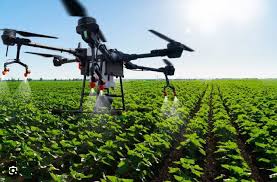Technology is playing a vital role in revitalizing Nigeria’s agricultural sector, especially through innovations like soil-less farming, also known as hydroponics. This modern farming method allows plants to grow without soil by immersing their roots in a nutrient-rich solution. This approach not only addresses the challenges of soil depletion and unpredictable climates but also makes it possible to grow crops all year round, offering a promising solution to Nigeria’s food crisis.

One of the key figures championing this technology in Nigeria is Mr. Ogbole Samson, the Team Lead for Eupepsia Place Limited (Soilless Farm Lab). Samson’s approach utilizes greenhouses and drip irrigation systems, allowing for high crop yields on minimal land with less water usage. His work demonstrates that soil-less farming can significantly boost agricultural productivity, making it a scalable solution for addressing food insecurity in the country.
Another innovator in this space is Mr. Femi Adekoya, the Managing Director and Founder of Integrated Ariel Precision. Adekoya is using precision agriculture technology, particularly drones, to improve farming efficiency. Drones provide real-time data on soil health, crop conditions, and environmental factors, enabling farmers to apply inputs like water and fertilizers more precisely. This data-driven approach reduces waste, increases yields, and makes farming more profitable.
Mr. Steve Okeleji, the Founder of Aquatic Hub Afrique Network, is also harnessing technology to overcome challenges such as high operational costs and environmental risks. Starting with simple wooden boxes, Okeleji has advanced to pioneering cage farming in Nigeria. His success highlights how continuous improvement and the use of technology can lead to significant achievements in agriculture.
Okeleji strongly believes that Nigeria should focus on supporting local farmers rather than relying on food imports. He argues that importing food undermines the efforts of local farmers, who invest months into growing crops like rice, maize, and beans. Instead, he suggests that the government should invest in local agriculture and encourage young people to enter the farming sector. By doing so, Nigeria can become more self-sufficient and secure in its food supply.
These innovators—Samson Ogbole, Steve Okeleji, and Femi Adekoya—are setting a new standard in Nigerian agriculture. They are proving that with the right tools and mindset, the country’s vast agricultural potential can be unlocked.
The integration of technology in agriculture is not just about improving productivity; it’s also about changing perceptions. In Nigeria, farming is often seen as a low-status, labor-intensive job, especially among the youth. However, as the examples of Ogbole, Okeleji, and Adekoya show, modern agriculture can be a dynamic, innovative, and highly rewarding field.
Technology is key to making farming more appealing to young people. Tools like drones, automated systems, and data analytics transform farming from a traditional, manual task into a high-tech industry. This shift not only attracts young talent but also equips them with the skills needed to drive further innovation in the sector.
Engaging the youth in agriculture is crucial for Nigeria’s future food security and economic growth. With the population expected to exceed 300 million in the coming decades, the demand for food will continue to rise. Ensuring that a new generation of farmers is equipped with the latest technologies is essential for meeting this demand and reducing the country’s reliance on food imports.
The work of these innovators demonstrates that with the right technology and support, Nigerian agriculture can thrive, offering a sustainable solution to the country’s food crisis and inspiring a new generation of tech-savvy farmers.



